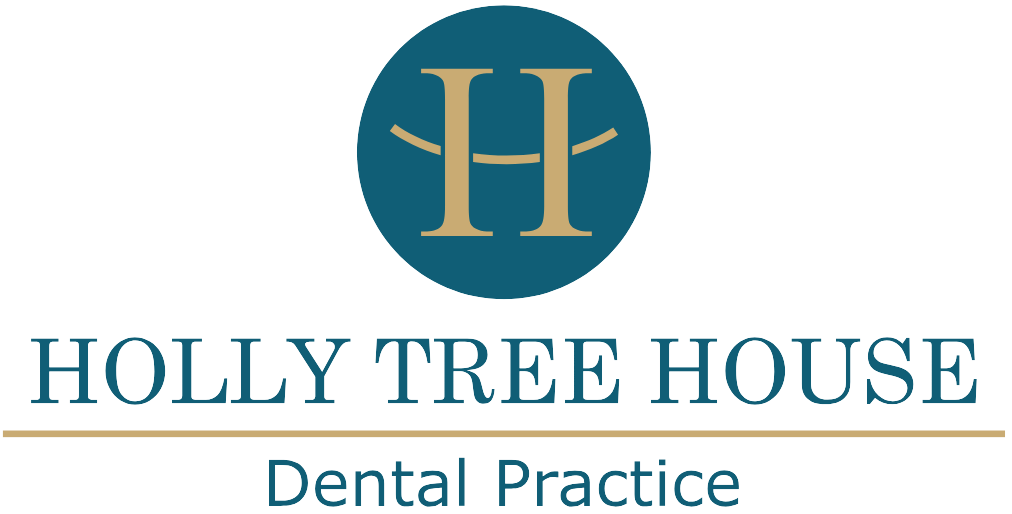Questions about General Dentistry
The frequency of dental check-ups depends on your individual oral health needs. While some people benefit from check-ups every six months, others may be able to go a year between visits.
Several factors can influence how often you need check-ups, including:
- Your risk of dental decay or gum disease
- Your overall health
- Your past dental history
Your dentist will examine your mouth, discuss your individual needs, and recommend the most suitable schedule for your dental check-ups.
Dental X-rays are a valuable tool that helps us diagnose and prevent dental problems. They allow us to see:
- Between your teeth: X-rays can reveal cavities that might be hiding between teeth, where a normal exam can’t reach.
- Underlying issues: They also help us assess the health of your jawbone and gums, which can be important for planning treatment.
How often you need X-rays depends on your individual oral health needs. Typically, we recommend routine X-rays every 2 years. However, you might need them more frequently if you have:
- Frequent cavities
- Gum disease
- Other risk factors for dental problems
Dental X-rays emit a very low amount of radiation. In fact, the amount of radiation from two bitewing X-rays (a common type) is similar to the amount you’d receive on a one-way flight to Spain.
Dental decay, also known as cavities, can be tricky to detect in the early stages. Here’s what to watch out for:
- Early Signs: In the beginning, decay might show as a small white or brown stain on the tooth surface. Unfortunately, if the decay occurs between teeth, it might not be visible during a self-examination.
- Sensitivity: As decay progresses, you may experience sensitivity, especially when consuming cold beverages or sweets.
- Pain: If decay reaches the center of the tooth where the nerve is located, it can cause sharp pain or even become excruciating.
Early detection and prevention are key to avoiding discomfort and more complex treatments.
Here are some tips for maintaining good oral health and preventing decay:
- Brushing twice a day with fluoride toothpaste
- Flossing daily
- Regular dental check-ups and cleanings
If you’re concerned about tooth decay, don’t hesitate to contact our friendly reception team. They can answer your questions and schedule an appointment for a thorough examination. Call us directly at 0115 962 2882.
Brushing your teeth is essential, but it can’t reach everywhere. Flossing and interdental brushes help clean those hard-to-reach areas between your teeth, where plaque and bacteria love to hide. Here’s why cleaning these areas is crucial for your oral health:
- Reaches Hidden Plaque: Up to 40% of your tooth surface is out of reach for your toothbrush bristles. Flossing and interdental brushes remove plaque and food particles that can contribute to decay and gum disease.
- Prevents Gum Disease: Plaque left unchecked can irritate your gums, leading to gingivitis (inflammation) and potentially progressing to periodontitis (severe gum disease).
- Freshens Breath: Food particles trapped between teeth can cause bad breath. Regular flossing or using interdental brushes helps combat this.
Flossing vs. Interdental Brushes: Both flossing and interdental brushes are effective for cleaning between teeth, but they might not be suitable for everyone.
- Flossing: A traditional and versatile option for most people that works best in tight areas
- Interdental Brushes: Small brushes ideal for cleaning spaces between teeth or for those with dexterity limitations.
We recommend talking to one of our hygienists to determine which method is best suited for your individual needs and how to use it effectively. They can provide personalized advice and ensure you’re cleaning your teeth thoroughly.
We understand that visiting the dentist can cause anxiety for many people. Here at Holly Tree House Dental Practice, we offer several ways to make your visit comfortable:
- Open Communication: Let our friendly reception team know about any concerns you have. The more we understand your worries, the better we can tailor your experience.
- Clear Communication: We promise clear and compassionate communication throughout your appointment. We will explain any treatment options in an understandable way, so you know exactly what to expect.
- Relaxing Environment: We strive to create a relaxing environment in our practice.
- Patient Pace: We won’t rush your appointment and are happy to take extra time to answer your questions and address your concerns.
Our goal is to build trust and confidence, so you can feel comfortable visiting the dentist.
Periodontal disease, also known as gum disease, is an infection that affects the tissues supporting your teeth. These tissues include the gums, bone, and ligaments. Here’s a breakdown:
- Healthy Gums: Healthy gums are pink, firm, and don’t bleed easily when you brush.
- Gum Disease: When plaque (sticky film containing bacteria) builds up on teeth and isn’t removed, it can irritate the gums, causing inflammation. This is the early stage of gum disease, called gingivitis. Gingivitis is often painless, but you might notice some bleeding when you brush or floss.
Signs of Gum Disease:
Here are some early warning signs of gum disease to watch out for:
- Bleeding gums: This is a common sign, especially in the early stages (gingivitis).
- Red, swollen, or tender gums
- Persistent bad breath
- Receding gums (gums that pull away from your teeth)
- Loose teeth (more advanced stage)
What to Do if You’re Concerned:
If you experience any of these signs, it’s important to schedule a dental check-up. Early detection and treatment of gum disease are crucial for preventing tooth loss and other complications.
We recommend scheduling regular dental cleanings and check-ups to maintain good oral health and prevent gum disease.
Questions about Children’s Dentistry
In the UK, it’s recommended to bring your child for their first dental check-up by their first birthday, or within 6 months of their first tooth erupting. Here’s why early visits are important:
- Early Detection: Regular check-ups allow us to identify potential problems early, when they’re easier to treat. This can be anything from tooth decay to tongue-tie, which can affect feeding.
- Habit Development: Early dental visits help your child develop positive associations with oral health and feel comfortable visiting the dentist in the future.
- Gentle Introduction: The first visit might focus on familiarizing your child with the dental environment through play and gentle examinations.
What to Expect at the First Visit:
The first dental visit is usually short and focused on getting your child comfortable. We might:
- Count teeth
- Gently examine their gums and mouth
- Discuss oral hygiene practices for young children
- Answer any questions you have about your child’s oral health
Relaxed Environment:
We strive to create a relaxed and welcoming environment for children. Our team is experienced in working with young patients and will make sure your child feels comfortable.
Regular dental check-ups are essential for children’s oral health, and we recommend seeing them every 6 months up to the age of 16. Here’s why:
- Protecting Developing Teeth: Children’s teeth have thinner enamel compared to adult teeth, making them more susceptible to decay. Early detection and treatment through regular check-ups can prevent cavities and other problems.
- Fluoride for Strong Teeth: We may recommend applying a high-fluoride varnish or paste to your child’s back teeth during their visit. Fluoride strengthens teeth and helps prevent decay, promoting good oral health well into adulthood.
- Monitoring Adult Teeth Development: Regular check-ups allow us to monitor the development of your child’s adult teeth. If any alignment issues arise, we can refer you to an orthodontist for early intervention with braces, potentially preventing more complex treatments later.
- Establishing Healthy Habits: Regular dental visits help children develop positive associations with oral health and get comfortable with the dental environment. This sets the stage for good oral hygiene habits throughout their lives.
It’s common for adult teeth to start erupting before baby teeth fall out. In most cases, there’s no need to be concerned. Here’s why:
- Natural Process: Sometimes, there simply isn’t enough pressure from the erupting adult tooth to cause the baby tooth to loosen and fall out naturally.
- Space Maintainers: In some cases, the adult tooth might erupt behind the baby tooth, potentially causing crowding. If this is a concern, we can discuss space maintainers to preserve space for the permanent teeth.
When to Consider Treatment:
While it’s usually nothing to worry about, here are some cases where we might recommend treatment:
- Loose Baby Tooth: If the baby tooth is loose but not falling out on its own, we can gently remove it to allow the adult tooth to erupt properly.
- Impacted Adult Tooth: If the adult tooth appears stuck and isn’t erupting after a significant amount of time, we might recommend an X-ray to assess the situation and determine the best course of action.
We’ll Monitor the Situation:
We’ll closely monitor your child’s teeth during their regular dental check-ups. If there’s any concern about the baby teeth not falling out or the adult teeth erupting properly, we’ll discuss treatment options with you.
Questions about our Treatments
Teeth whitening is a safe and popular cosmetic dental procedure that can brighten your smile. Here’s what you need to know:
Safety:
- Minimal Risks: When done correctly by a dental professional or using approved at-home whitening products, teeth whitening is considered safe for most people.
- Sensitivity: A common side effect is temporary tooth sensitivity, which usually subsides within 1-2 days after treatment. We take steps to minimize this, such as recommending desensitizing toothpaste beforehand.
Our Approach:
- Professional Consultation: We recommend a consultation to discuss your goals and determine if teeth whitening is right for you.
- Safe Products: We use professional-grade whitening products that are safe and effective.
- Progress Tracking: We’ll take before-and-after photos to track your progress and ensure you’re happy with the results.
As with anything in dentistry, each treatment plan is specific to you and your need for local anaesthetic will depend nature of the procedure you are having done and the length of treatment. This will be discussed with you prior to us beginning treatment. Please discuss this with us if you have any concerns.
We understand that a strong gag reflex can make dental treatment stressful. Here at Holly Tree House Dental Practice, we are committed to providing a comfortable experience for all our patients, and we offer several options to help those with strong gag reflexes:
- Desensitization Techniques: We can discuss relaxation techniques and desensitization exercises you can try before your appointment.
- Numbing Options: Anesthesia (numbing medication) can help reduce discomfort and gagging during treatment.
- Digital Impressions: We utilize state-of-the-art digital scanners like the iTero Intraoral Scanner. This eliminates the need for traditional uncomfortable putty molds, which can trigger gagging.
- Open Communication: Let our friendly and understanding team know about your concerns. We’ll work with you to choose the most comfortable approach for your treatment.















